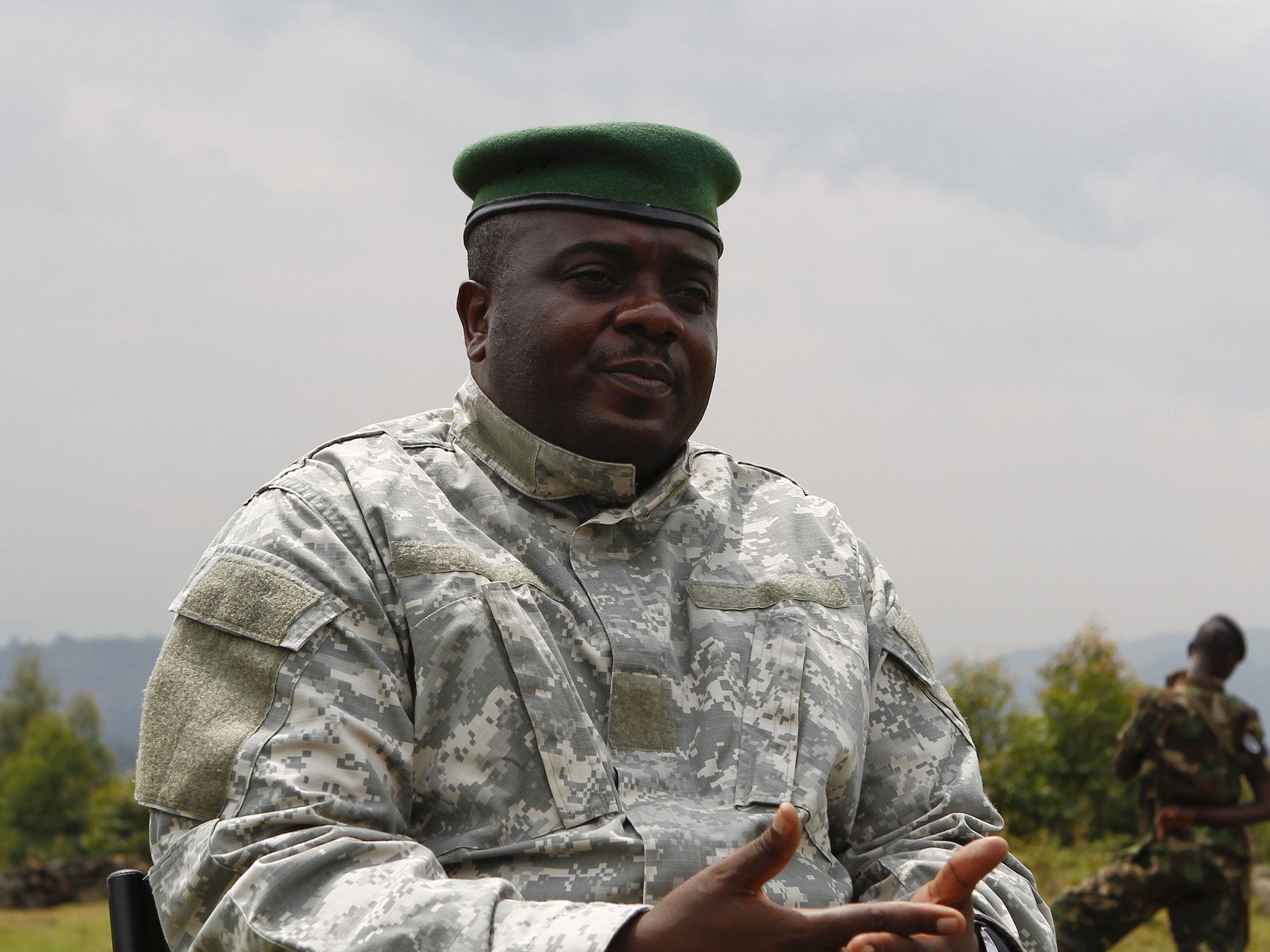Congolese rebels retreat after offensive by UN-backed troops
M23 group declares unilateral ceasefire ‘to give peace a chance’ after week of fighting

Rebels entrenched in the hills above one of eastern Congo’s largest cities declared a unilateral ceasefire yesterday and began retreating from the front line – the first indication that a joint United Nations and Congolese offensive might be gaining the upper hand in the conflict.
The M23 rebels said they had begun pulling back from Kanyaruchinya village, which has been in the centre of fighting that erupted on 21 August.
They claimed the move was to allow UN inspectors a chance to investigate the shelling of nearby towns.
M23 president Bertrand Bisimwa said that beyond the investigation, his group was declaring the ceasefire “to give peace a chance”.
“We have started pulling our forces out of Kanyaruchinya to allow the investigation into the shelling,” he told the Associated Press.
“This announcement, which was made unilaterally, is meant to allow the Congolese to return to the negotiating table.”
The declaration marks a significant change in tone for the M23 rebels. As recently as Wednesday, Mr Bisimwa maintained that the rebels had the advantage and that UN and Congolese troops had been forced to retreat.
The M23 rebel group, which was formed in 2012, succeeded in seizing and briefly holding Goma last year. That prompted the United Nations to create a special intervention brigade, which, alongside Congolese troops, has been pounding rebel positions for the past week, using combat helicopters, artillery and armoured personnel carriers. The rebels’ retreat suggests the week-long offensive against the rebels might have turned a corner.
But in Congo’s capital, Kinshasa, government spokesman Lambert Mende said the call for a ceasefire did not go far enough.
“It’s our opinion that the only interesting proposition would be to see M23 demobilised, and to see them dissolve and cease all military action. Any other proposal is unacceptable,” said Mende, Congo’s Minister of Information.
The latest fighting, which began last Wednesday, has so far claimed the lives of one UN peacekeeper and at least 10 Congolese soldiers and 14 civilians. They were killed by shelling on either side of the Congo-Rwanda border.
On Thursday, Rwandan officials confirmed the death of a woman in the border district of Rubavu, who died after a rocket coming from the Congolese side exploded in Rwandan territory. Officials claim the rocket was fired deliberately by Congolese troops to drag Rwanda into the conflict – a claim that was seen as deeply cynical by some, given the mounting evidence that the M23 rebels are a Rwandan proxy force.
A recent United Nations Group of Experts report described how Rwandan soldiers sneak across the border in groups of up to 30 men to join the ranks of the M23 – a group which is almost entirely Tutsi, the ethnic group of Rwanda’s ruling class.
Previous UN reports have described the logistical support Rwanda is providing to the rebels, including night-vision goggles.
Late on Thursday, Rwanda’s Foreign Minister Louise Mushikiwabo said Rwandan troops might enter Congo. She said in a tweet that her country was not currently in Congo but added the word “yet” in parenthesis. Earlier in the day she had said Rwanda had remained restrained “for as long as we can”.
Goma, a Congolese city of 1 million people on the Rwandan border, briefly fell to the M23 rebels last year. It was a humiliating blow both to the Congolese military, which barely put up a fight, and the thousands of United Nations peacekeepers stationed in the region, who stood by as the rebels entered the strategic town.
They said they could not intervene because their mandate only permitted them to protect civilians.
In response, the UN created the new intervention brigade which is authorised to directly combat the rebels.
AP
Join our commenting forum
Join thought-provoking conversations, follow other Independent readers and see their replies
Comments
Bookmark popover
Removed from bookmarks